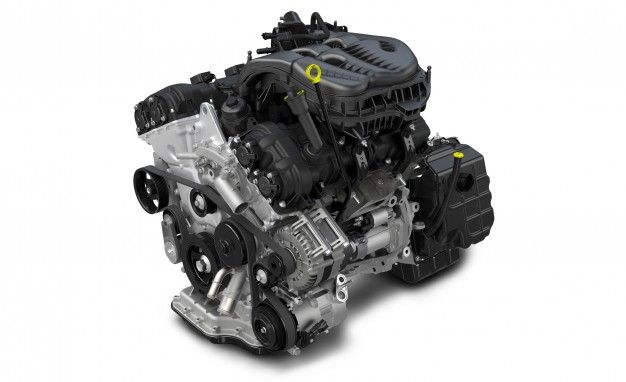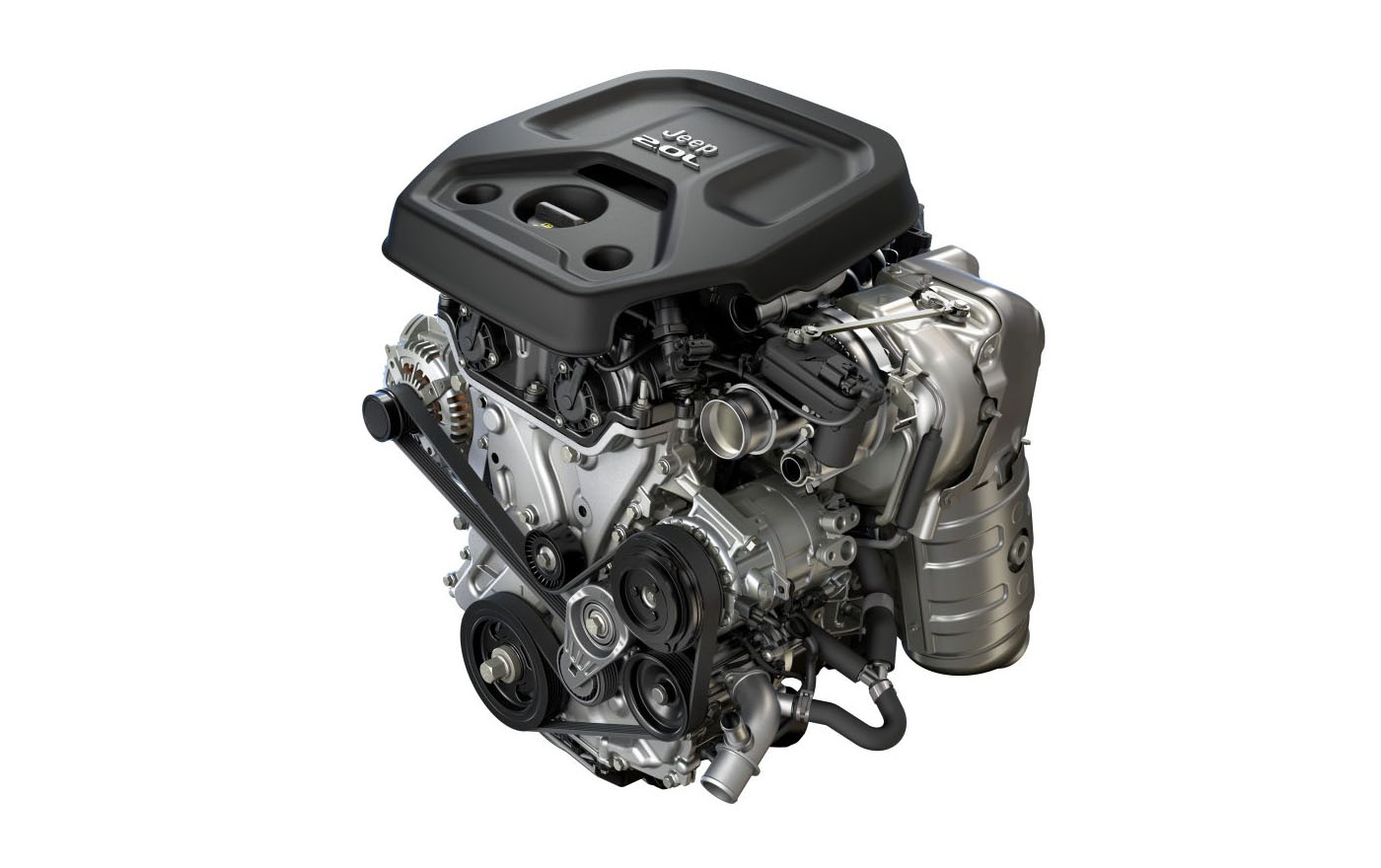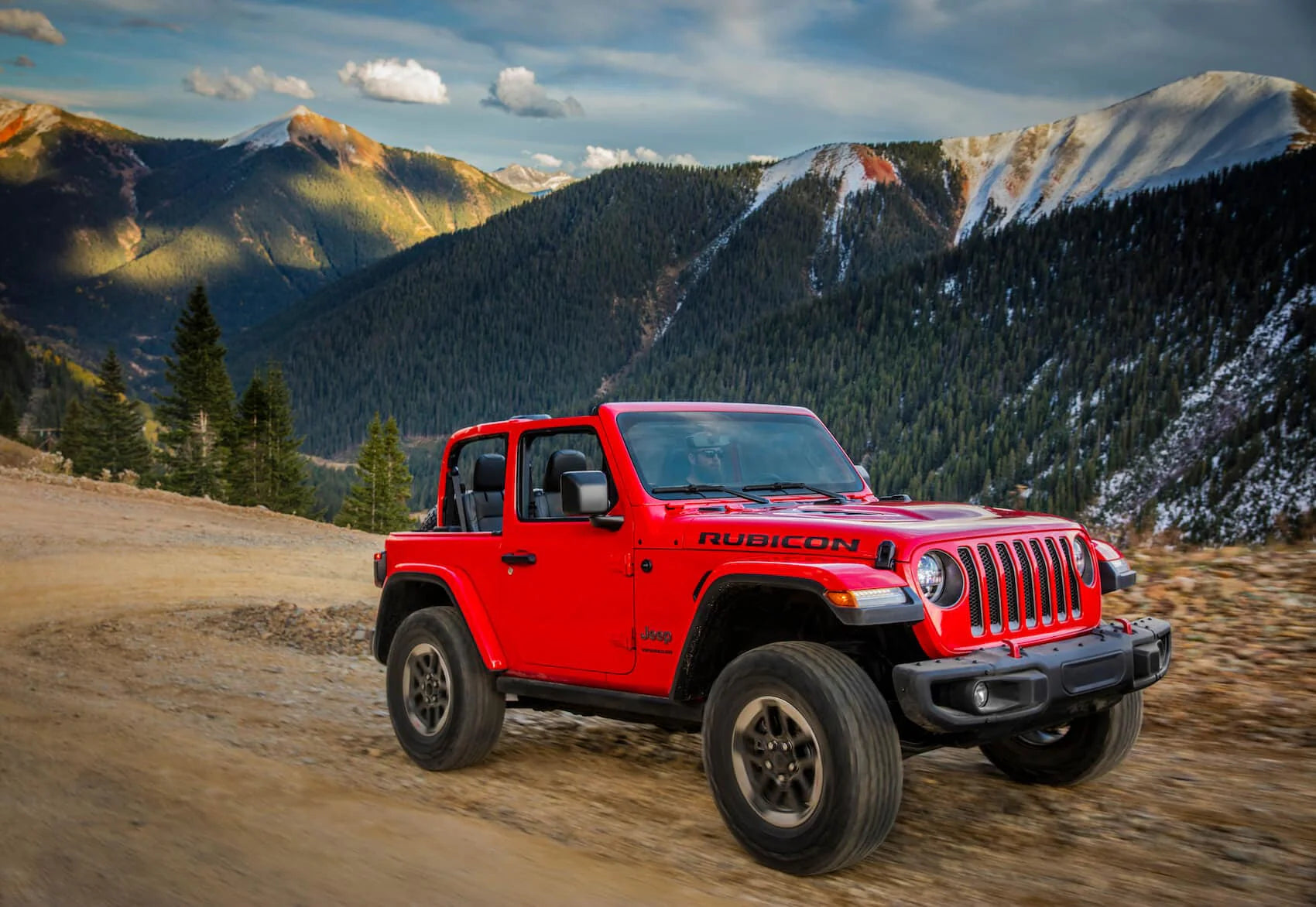If you're considering a Jeep Wrangler, you might be curious about its fuel efficiency. While these rugged vehicles are known for their off-road capabilities and adventure-ready design, gas mileage is an important factor to keep in mind. In this article, we will explore how much gas a Jeep Wrangler uses, the different engine options available, and tips for improving fuel efficiency. Whether you're driving in the city or hitting the trails, understanding your Wrangler's gas mileage can help you plan your adventures better.
Key Takeaways
- Jeep Wranglers are not known for their fuel efficiency, but they offer various engine options that affect gas mileage.
- The average MPG for a two-door Wrangler is around 17 cities and 23 highways, while the four-door model can achieve about 20 cities and 24 highways.
- The Wrangler 4xe, a plug-in hybrid, provides the best fuel economy with an estimated 49 MPGe.
- Factors like vehicle weight, driving style, and maintenance can greatly influence your Wrangler's gas mileage.
- You can improve fuel efficiency by adopting better driving habits and keeping up with regular maintenance.
Understanding Jeep Wrangler's Gas Mileage
What is Gas Mileage?
Gas mileage refers to how far a vehicle can travel on a specific amount of fuel. It is measured in miles per gallon (MPG). The higher the MPG, the more efficient the vehicle is, meaning it costs less to drive. The U.S. Environmental Protection Agency (EPA) categorizes MPG into three types:
- City MPG: Average miles driven in stop-and-go traffic.
- Highway MPG: Average miles driven at higher speeds on open roads.
- Combined MPG: An average of both city and highway ratings.
How is Gas Mileage Measured?
Gas mileage is typically measured during controlled tests by the EPA. They assess how many miles a vehicle can travel on a gallon of fuel under different conditions. This helps consumers understand the fuel efficiency of various vehicles, including the Jeep Wrangler.
Why Gas Mileage Matters
Understanding gas mileage is important for several reasons:
- Cost Savings: Higher MPG means spending less on fuel.
- Environmental Impact: Better fuel efficiency can lead to lower emissions.
- Driving Range: Knowing your vehicle's MPG helps you plan trips without running out of gas.
The Jeep Wrangler, while not the most fuel-efficient SUV, offers a balance of performance and practicality, making it a popular choice among off-road enthusiasts.
|
Model |
City MPG |
Highway MPG |
Combined MPG |
|
Jeep Wrangler Unlimited |
19 |
24 |
21 |
|
Jeep Wrangler 4xe |
49 MPGe |
- |
- |
|
Jeep Wrangler Rubicon 392 |
13 |
17 |
14 |
Jeep Wrangler Engine Options and Their Impact on MPG
The Jeep Wrangler offers several engine choices, each affecting its fuel efficiency differently. Understanding these options can help you choose the best model for your needs.
3.6-Liter V-6 Engine

The standard 3.6-liter V-6 engine is a popular choice among Jeep enthusiasts. It produces 285 horsepower and has an EPA-estimated fuel economy of 18 MPG in the city and 24 MPG on the highway. This engine is known for its reliability and performance, making it a solid option for off-road adventures.
2.0-Liter Turbo Four-Cylinder Engine

The 2.0-liter turbo four-cylinder engine is an upgrade that offers better fuel efficiency. It delivers 270 horsepower and achieves an EPA-estimated 20 MPG in the city and 23 MPG on the highway. This engine balances power and fuel economy, making it a great choice for daily driving.
6.4-Liter HEMI V-8 Engine

For those seeking power, the 6.4-liter HEMI V-8 engine is available. While it offers thrilling performance with 470 horsepower, it has a trade-off in fuel efficiency, achieving only 13 MPG in the city and 16 MPG on the highway. This engine is perfect for those who prioritize power over fuel savings.
2.0-Liter Turbo Four-Cylinder Plug-In Hybrid (4xe)
The 2.0-liter turbo four-cylinder plug-in hybrid (4xe) is the most fuel-efficient option, boasting an impressive EPA-estimated 49 MPGe. This model combines electric and gas power, allowing for short trips without gasoline. It's an excellent choice for eco-conscious drivers.
|
Engine Type |
Horsepower |
City MPG |
Highway MPG |
Combined MPG |
|
3.6-Liter V-6 |
285 |
18 |
24 |
20 |
|
2.0-Liter Turbo Four-Cylinder |
270 |
20 |
23 |
21 |
|
6.4-Liter HEMI V-8 |
470 |
13 |
16 |
14 |
|
2.0-Liter Turbo Four-Cylinder (4xe) |
375 |
N/A |
N/A |
49 MPGe |
In summary, the choice of engine in a Jeep Wrangler significantly impacts its gas mileage. Choosing the right engine can enhance your driving experience while keeping fuel costs manageable.
Comparing Jeep Wrangler MPG Across Models
When looking at the Jeep Wrangler's fuel efficiency, it's important to compare different models. The MPG can vary based on the number of doors, engine type, and transmission. Here’s a breakdown:
Two-Door vs. Four-Door Models
- Two-Door Models: Generally, these models have better MPG ratings due to their lighter weight. For example, the two-door Wrangler with a 3.6-liter V-6 engine achieves an EPA-estimated 17/23/19 MPG (City/Highway/Combined).
- Four-Door Models: While they offer more space, they usually have slightly lower MPG. The four-door version with the same engine gets about 16/22/19 MPG (City/Highway/Combined).
Manual vs. Automatic Transmission
- Manual Transmission: The six-speed manual transmission is standard on many models, providing an EPA-estimated 17/23/19 MPG for two-door versions.
- Automatic Transmission: Switching to the eight-speed automatic can improve fuel efficiency, with two-door models achieving up to 18/24/20 MPG.
Wrangler 4xe vs. Traditional Models
- Wrangler 4xe: This plug-in hybrid model stands out with an impressive EPA-estimated 49 MPGe, making it the most fuel-efficient option.
- Traditional Models: The standard gasoline engines, like the 3.6-liter V-6, offer lower MPG ratings, typically around 18/24/20 MPG for automatic four-door versions.
|
Model Type |
City MPG |
Highway MPG |
Combined MPG |
|
Two-Door (3.6L V-6) |
17 |
23 |
19 |
|
Four-Door (3.6L V-6) |
16 |
22 |
19 |
|
Two-door (Automatic) |
18 |
24 |
20 |
|
Four-door (Automatic) |
18 |
23 |
20 |
|
Wrangler 4xe |
49 MPGe |
N/A |
N/A |
The Jeep Wrangler's MPG can significantly impact your driving experience, especially for those who love adventure. Understanding these differences helps in making an informed choice.
Factors That Affect Jeep Wrangler Gas Mileage
Vehicle Weight and Design
The weight and design of the Jeep Wrangler play a big role in its fuel efficiency. The Wrangler is a heavy vehicle, averaging around 4,167 pounds. This weight helps with safety and stability but makes it harder to move, which can lower gas mileage. Additionally, its boxy shape increases wind resistance, making it less aerodynamic.
Driving Conditions and Habits
Your driving style can greatly impact how much gas your Jeep uses. Aggressive driving, like rapid acceleration and hard braking, can significantly decrease fuel efficiency. Here are some tips to improve your driving habits:
- Maintain a steady speed, especially on highways.
- Use cruise control when possible.
- Avoid sudden stops and starts.
Maintenance and Modifications
Regular maintenance is crucial for keeping your Jeep running efficiently. Here are some maintenance tips:
- Keep your tires properly inflated.
- Change your oil regularly.
- Replace air filters as needed.
Modifications can also affect gas mileage. While some upgrades can improve performance, others may add weight or drag, reducing efficiency.
Keeping your Jeep well-maintained and driving smoothly can help stretch your fuel further.
In summary, understanding how weight, driving habits, and maintenance affect your Jeep Wrangler's gas mileage can help you make better choices for fuel efficiency.
Tips to Improve Your Jeep Wrangler's Fuel Efficiency
Driving Habits to Adopt
- Avoid unnecessary idling. Use the start/stop feature to save fuel.
- Keep your speed steady, especially on highways. The best speed for fuel efficiency is around 55 mph.
- Use cruise control on long drives; it can help you save gas.
Maintenance Tips
- Regularly service your vehicle to keep it running smoothly.
- Ensure your tires are properly inflated to reduce rolling resistance.
- Replace old spark plugs and air filters to improve engine performance.
Modifications to Consider
- Consider lighter accessories to reduce weight. For example, avoid heavy bumpers or racks.
- Installing a Cold Air Intake can enhance engine performance and improve fuel economy by 1-2 MPG.
- If you often carry gear, think about using a utility trailer to lessen the load on your Jeep.
Keeping your Jeep light and well-maintained can significantly improve its fuel efficiency. Don't weigh your vehicle down with unnecessary items and luggage!
How Jeep Wrangler's MPG Compares to Competitors
When looking at the 2025 Jeep Wrangler competitors, it’s important to see how its fuel efficiency stacks up against similar vehicles. The Wrangler is known for its off-road capabilities, but how does it perform in terms of gas mileage compared to others in its class?
Comparison with Ford Bronco
- The Ford Bronco offers an EPA-estimated 21 MPG city, 20 MPG highway, and 22 MPG combined.
- While the Bronco is competitive, the Wrangler's off-road performance often gives it an edge in rugged terrains.
Comparison with Chevy Blazer
- The Chevy Blazer boasts an impressive 22 MPG city, 29 MPG highway, and 25 MPG combined.
- This makes the Blazer a strong contender for those prioritizing fuel efficiency over off-road capabilities.
Comparison with Toyota 4Runner
- The Toyota 4Runner has lower ratings at 16 MPG city, 19 MPG highway, and 17 MPG combined.
- Despite its lower fuel efficiency, the 4Runner is favored for its reliability and off-road prowess.
|
Vehicle Model |
City MPG |
Highway MPG |
Combined MPG |
|
Jeep Wrangler |
17-20 |
23-24 |
19-21 |
|
Ford Bronco |
21 |
20 |
22 |
|
Chevy Blazer |
22 |
29 |
25 |
|
Toyota 4Runner |
16 |
19 |
17 |
The Jeep Wrangler may not always lead in fuel efficiency, but its unique blend of power and off-road capability makes it a favorite among adventure seekers.
Final Thoughts on Jeep Wrangler Gas Mileage
In conclusion, the Jeep Wrangler is known for its adventurous spirit and rugged design, but it does come with some trade-offs when it comes to fuel efficiency. Depending on the model and engine type, you can expect anywhere from 13 to 49 miles per gallon. While it may not be the most fuel-efficient vehicle out there, many owners find that the fun and freedom of driving a Wrangler outweigh the costs at the pump. By choosing the right model and following some simple tips, you can make the most of your gas mileage and enjoy your journeys even more.
Frequently Asked Questions
What is the average gas mileage for a Jeep Wrangler?
The average gas mileage for a Jeep Wrangler varies depending on the model and engine. Generally, a four-door Wrangler gets about 19 miles per gallon (MPG) in the city and 24 MPG on the highway.
How much gas does a Jeep Wrangler's fuel tank hold?
A two-door Jeep Wrangler can hold 17.5 gallons of gas, while the four-door version can hold up to 21.5 gallons.
What type of fuel should I use for my Jeep Wrangler?
Most Jeep Wranglers use regular gasoline, but models with the 2.0-liter turbo engine or the 6.4-liter HEMI V8 perform better with premium gasoline.
How can I improve my Jeep Wrangler's gas mileage?
You can improve your Jeep Wrangler's gas mileage by keeping your tires properly inflated, avoiding heavy loads, and maintaining your vehicle regularly.
Does the Jeep Wrangler's gas mileage change with different engines?
Yes, the gas mileage can change based on the engine type. For instance, the 2.0-liter turbo engine usually offers better fuel efficiency compared to the standard V6.
How does the Jeep Wrangler's gas mileage compare to other SUVs?
While the Jeep Wrangler may not have the best gas mileage among SUVs, it performs well compared to similar off-road vehicles, making it a solid choice for adventure.


